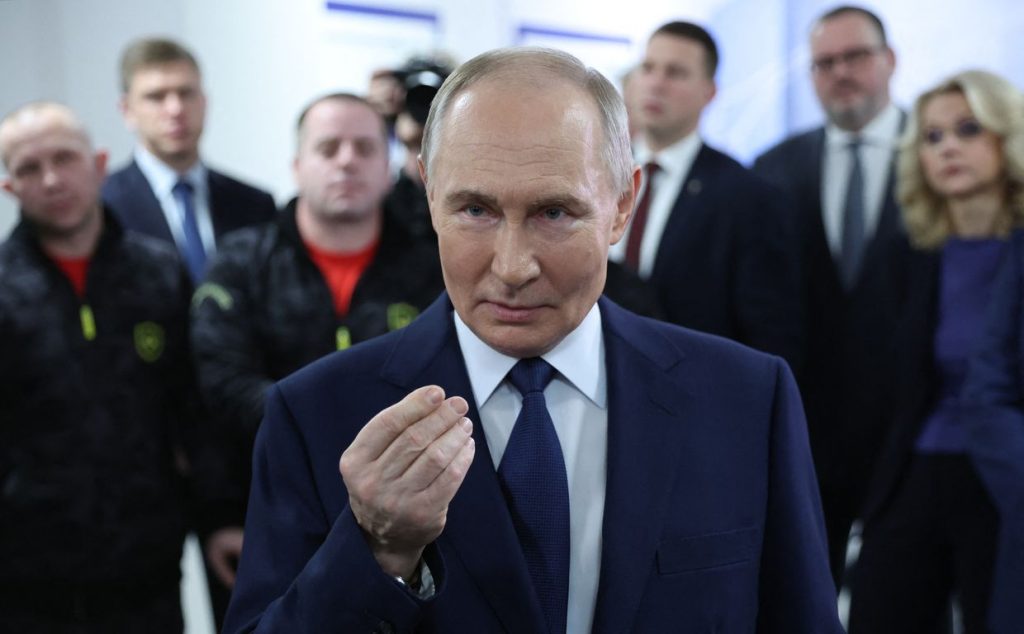Russian President Vladimir Putin has instructed the government and state-owned bank Sberbank to develop partnerships with China in the field of artificial intelligence (AI), as published on the Kremlin web portal on Jan. 1. This move comes in the context of Russia facing limitations in developing its AI industry due to international sanctions, particularly in obtaining essential microchips like GPUs. Sberbank has been tasked with leading Russia’s AI development effort, and Putin emphasized the need for further cooperation with China in technological research and development. This alliance with Beijing has helped Russia overcome barriers imposed by Western sanctions, allowing access to technology and equipment that would otherwise be restricted.
The development of the new AI alliance follows Putin’s announcement on Dec. 11 that he intends to establish a network with members of BRICS and other interested countries. This move aligns with Russia’s efforts to strengthen ties with emerging economies and reduce its dependency on Western technology. Sberbank claimed that AI associations from Brazil, China, India, and South Africa have already joined the network, highlighting the growing collaboration among these nations. The BRICS bloc, comprising Brazil, Russia, India, China, and South Africa, is often seen as a counterweight to the Western-led world, and Russia’s initiative to form an AI alliance within this framework underscores its commitment to diversifying partnerships and expanding technological cooperation.
China has emerged as a key partner for Russia in the wake of the Kremlin’s full-scale invasion of Ukraine, with Beijing providing crucial support in various sectors. Despite denying allegations of backing Russia’s military actions, China has deepened its ties with Moscow, signaling a closer strategic alignment between the two countries. Chinese President Xi Jinping exchanged New Year greetings with Putin, emphasizing the elevated level of political mutual trust and strategic coordination between the two nations. Plans for Xi Jinping’s visit to Russia have been discussed, with Ambassador Igor Morgulov indicating that the trip is a priority in the bilateral agenda. This visit is likely to further solidify the partnership between Russia and China, especially in the realm of AI technology and research.
The limitations imposed by international sanctions have posed challenges for Russia’s AI industry, particularly in acquiring essential components like microchips for developing AI systems. With major producers refraining from shipping to Russia due to restrictions, the country has resorted to purchasing products through third-party sellers in other regions. Sberbank CEO German Gref highlighted the difficulties faced by Russia in replacing GPUs, crucial for AI development, underscoring the importance of forging partnerships with countries like China to access technology and expertise. By directing Sberbank to lead the AI development effort and fostering collaboration with China, Putin aims to enhance Russia’s capabilities in the tech sector and reduce its reliance on Western suppliers.
The growing collaboration between Russia and China in AI technology reflects a broader trend of increasing cooperation between the two nations in various domains. As Moscow seeks to diversify its international partnerships and expand its technological capabilities, Beijing has emerged as a key ally in areas such as AI research and development. The establishment of the new AI alliance network with BRICS and other interested countries signifies Russia’s strategic shift towards forging stronger ties with emerging economies and reducing its dependence on Western technology. By leveraging the technological expertise and resources of China, Russia aims to bolster its position in the global AI landscape and advance innovation in key sectors.
In conclusion, Russia’s directive to develop AI partnerships with China underscores the country’s determination to enhance its technological capabilities and overcome limitations imposed by international sanctions. By collaborating with Beijing and establishing an AI alliance network with other countries, Russia seeks to strengthen its position in the global tech industry and reduce its reliance on Western suppliers. The deepening ties between Russia and China in AI technology reflect a broader strategic alignment between the two nations, as they navigate geopolitical challenges and seek to advance innovation in key sectors. The upcoming visit of Chinese President Xi Jinping to Russia further underlines the growing partnership between the two countries and the potential for expanded cooperation in AI research and development.


